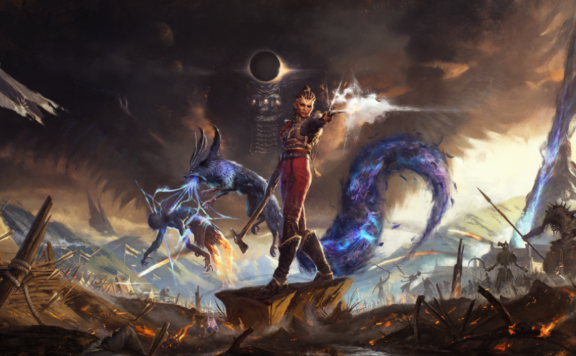Playing has always been an important part of human existence; children learn the essential functions of everyday life through play. However, this important and entertaining activity is not always protected from circumventing the existing rules of the game. Why do we often play video games wrong? Is it because we don’t listen to the sound advice of those who know more than we do? For instance, some famous quotes are associated with cheating and describe it all too aptly: “The better you know the rules of the game, the more fun it is to circumvent them.” or “You should always play honestly when you hold the trump cards.”
The Dalai Lama’s commandments two and five also say: “If you lose, don’t lose what you learn from it. Learn the rules, and then you will know how to break them.”
But in general, cheating, or to take the edge off the article a little, “cheating” or “cheating” is a highly controversial topic, as many players also like to use unauthorized aids during the course of the game.
And this not only applies when playing cards at the regulars’ table or with the family, when the person sitting next to you is skilfully looking at the hand, but also to the wide world of online video games. Since the early days of the PlayStation and Xbox, so-called “cheats” or “multi-hacks” and their secret keyboard shortcuts have been programmed into the gameplay – often by the game developers themselves – and later published. It is, therefore, not surprising that more and more players are using these unfair tools in most online games to gain a considerable advantage over their fellow players.
However, this raises a question: If these “cheats” often yield no financial gain, why are they used anyway? What makes us become a cheat during a game?
A few examples of cheating

Jump into the gaming scene, and you’ll find a bunch of folks trying to cheat their way to victory. It’s a real headache for game developers, especially in complex games like Call of Duty and PUBG. These games are like intricate mazes; sometimes, cheaters find ways to mess things up.
Now, here’s the scoop – these games have set outcomes that players can influence. It’s not like a slot machine where randomness rules. Cheaters use all sorts of tricks to get ahead. Some go all tech-savvy, using bots that automatically spot opponents and shoot with crazy precision. Picture this – they don’t even have to hit the firing button; it’s all done for them. Others take a different route, exploiting bugs in the game software to get endless ammo or max out on armor and weapons. It’s like a cheat code on steroids, giving them a massive edge.
Now, here’s a blast from the past – an older trick called “lag switching.” Some games may not fall for it anymore, but it used to be a thing. Players would mess with their connection to the host, freezing the opponent’s screen. By the time it unfreezes, their character’s already biting the dust on the ground. Sneaky, right?
So, while gaming is all fun and excitement, there’s this ongoing battle against cheaters trying to bend the rules. Stick around; we’re diving into the ever-evolving world of gaming and the quest for a level playing field.
And why are we actually playing wrong?

Now, let’s shift gears a bit. While we’re on the topic of smart cities and innovative energy projects, there’s another arena buzzing with activity – the world of gaming. You see, for many, the idea of cheating might seem pointless, especially if there’s no financial gain in the mix. And even if someone tried to make a quick buck through “gambling cheating,” developers are a step ahead. They’re armed with sophisticated anti-cheating techniques, playing the watchdog to ensure players can’t sneakily pocket winnings they didn’t earn.
It’s not just the developers; there’s a whole squad of game guardians out there. Fueled by passion, these folks dedicate their free time to protect and honor popular video games. Their mission? To expose the cheaters and boot them out of the game. It’s like a virtual crime-fighting squad, ensuring the gaming world stays fair and square.
Now, if you’re curious about the intricate dance between game developers, guardians, and cheaters, check out https://rateitcasino.com/casino-bonuses/. It’s not just about smart cities and energy projects; it’s about exploring the evolving landscape of gaming, where fairness and integrity take center stage. Stick around; we’re unraveling the threads of how innovation and dedication are shaping both our cities and our gaming realms.
Well, the reasons why we want to take advantage of our opponents are mostly psychological and not based on financial necessity. Many players aim to achieve a certain status during the game. Being seen as the “boss” symbolizes prestige often sought after and is a source of satisfaction for many proud players. These accolades and displays of honor are rapidly increasing in a digital world and have taken on a much higher significance than was even possible.
Achieving such status symbols naturally goes hand in hand with increasing self-esteem. Just as owning a brand new Porsche boosts the ego of its owner in the real world, reaching the highest level in a video game also boosts the self-esteem of the player concerned. Modern games are becoming increasingly realistic and immersive so that the physical and virtual worlds often seem connected: this is another reason why many players are increasingly focussing on online achievements rather than economic and social status in real life.
But the apparent lack of social consequences or punishments for immoral online behavior is also why the “card player tricks” are taken out of the drawer. While you might feel ashamed in real life if you cheat on your friends at Monopoly, on the Internet, you have no interpersonal contact with your virtual opponents, who are merely strangers. This is because an avatar is not a person they know, and therefore, the feeling of guilt is exponentially reduced, even if the victory was achieved through “online cheating.” And in very few cases will you be fined, quite the opposite of road traffic offences, where you have often been asked to pay for speeding, for example.
But “sabotage” is also one of the reasons why people are increasingly resorting to unauthorized aids in the online world. It’s hard to believe, but many players use these tools to enjoy the chaos and confusion they cause among their fellow players. These players enjoy the suffering of their opponents. As Alfred says in The Dark Knight: “Some people just want to watch the world burn”.
The reactions of game developers
Preventing cheating in online video games is a big deal for game creators. It’s like keeping their reputation shiny and making sure players have a fair shot. Why would anyone want to play against cheaters if a game is known for rule-breakers?
Legal action against cheaters is a headache – it’s complicated, time-consuming, and usually pricey. But check this out: Epic Games is ahead of the game. They’ve used super-smart detection tools that found over 1,200 cheaters at their Fortnite World Cup 2019. Boom – banned on the spot. They even took back the prize money from some winners.
And here’s where it gets cool – machine learning, the tech everyone’s talking about, is stepping in. It’s like a gaming superhero that can analyze how players do their thing and catch cheaters red-handed. It might even predict who’s up to no good before they pull off their tricks.
If these high-tech methods become the norm in gaming, cheating could take a nosedive. Players would think twice before trying to game the system because, let’s face it, the consequences would be a game-changer. It’s like boosting fairness and ensuring everyone plays by the rules. Stick around; we’re unraveling the future of fair play in the gaming universe.







